Green-hydrogen – Plastic-sorting 15-10-2022 - Arhive
Green-hydrogen – Plastic-sorting
-Synpet Tech plans to open a waste recycling plant in Belgium by 2024
Synpet Technologies wants to build a plastic waste recycling plant in Genk, it announced in a press release. The unit is expected to be operational in 2024 and employ around 70 people, said Chemicalrecycling.
Synpet has been working on its plastic waste recycling process since 2014. All waste containing carbon is targeted, including dirty non-recyclable plastics.
Concretely, the plastic is transformed into synthetic naphtha (normally a derivative of petroleum), which can be used to produce new plastic materials. Additionally, the process also produces natural gas, biochar, and liquid organic fertilizer.
In 2016, Synpet set up a small pilot plant in Istanbul. The company now wants to build a commercial factory in Belgium.
The plant will be located in Genk and will have the capacity to process some 180,000 tonnes of plastic per year. This is an investment of 90 million euros, the financing of which is almost complete. Depending on permit applications and construction work, the plant is expected to be operational by the end of 2024.
In addition, Synpet is already considering a second factory in Belgium. Finally, Synpet also plans to eventually transfer its research and development site from Turkey to Belgium. This would create additional jobs in Genk.
We remind, Indaver has started building a new facility for recycling end-of-life plastics into valuable basic chemicals for the industry. This Plastics2Chemicals facility will recycle approximately 65,000 tonnes of end-of-life plastics and will thus become the first and largest fully-industrial plant on an EU scale.
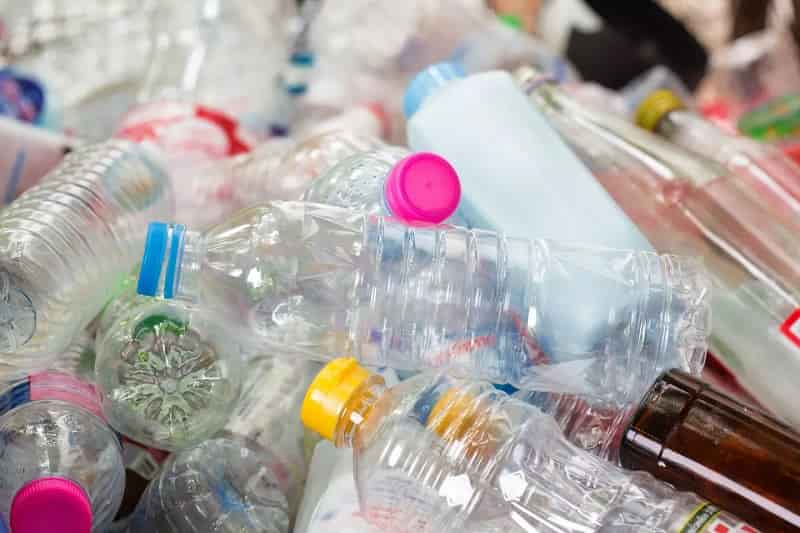
TotalEnergies, a global multi-energy company and Indaver, a leader in sustainable waste management and advanced recycling in Europe, announced a commercial agreement for the supply of petrochemical feedstock generated from recycling of mixed polyolefins waste.
Under this agreement, TotalEnergies will purchase the petrochemical feedstock produced at Indaver’s first Plastics2Chemicals plant (P2C). Indaver will supply and transform post-consumer mixed plastic waste into a petrochemical feedstock at its plant in Antwerp using its proprietary depolymerization technology. Currently under construction, the plant is expected to become operational by 2024.
TotalEnergies will process this petrochemical feedstock into high-quality circular polymers at its plants in Antwerp. With properties and quality identical to virgin polymers, the recycled polymers will be suitable for a wide range of high demanding applications including food-grade packaging.
““We are delighted to support the development of advanced plastic recycling through this new offtake agreement. A collaboration throughout the value chain is critical to develop a more circular and sustainable economy. This partnership contributes to our ambition of producing 30% circular polymers by 2030.”, said Valérie Goff, Senior Vice President Renewable Fuels & Chemicals.
“We are very pleased with this agreement. Our companies share the same vision of a true circular economy for recycled end-of-life plastics” declared Paul De Bruycker, CEO of the Indaver Group. “Indaver’s Plastics-to-Chemicals (P2C) depolymerisation technology allows to recycle end-of-life plastics such as polyolefins and polystyrene by converting them into a petrochemical feedstock that can be used for the production of high-demand packaging materials. With P2C, we significantly expand the possibilities for recycling of end-of-life plastics waste that could previously not be recycled or only be used for conversion into low-value applications” Mr De Bruycker added.
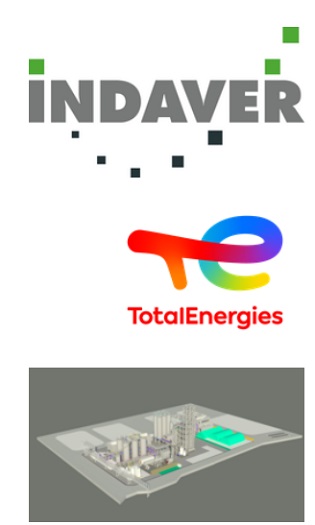
-Gneuß and Colines pool their expertise to offer efficient solutions
Gneuss and Colines have worked together to offer manufacturers of stretch film the possibility of using recycled polymer. Colines offers a special, proven cast & blown film extrusion process for handling recycled material, with the help of the Gneuss RSFgenius Melt Filtration System from Gneuss. Colines has already proven this process with up to 40 % recycled content in the manufacture of 10µm stretch film.
The constant melt pressure offered by the Gneuss RSFgenius Melt Filtration System is a major benefit when processing recycled material and the efficient self-cleaning function of the RSFgenius means not only no production disturbances and of course not production interruptions whatsoever. Further, the Gneuss RSFgenius Melt Filtration System operates fully automatically and only rarely needs any attention – another key advantage in the highly automated Colines extrusion process, says Gneuss.
Visitors to the “K” can find out more on both Colines (booth A39 in Hall 16) and Gneuss (Hall 9, booth A22) stands.
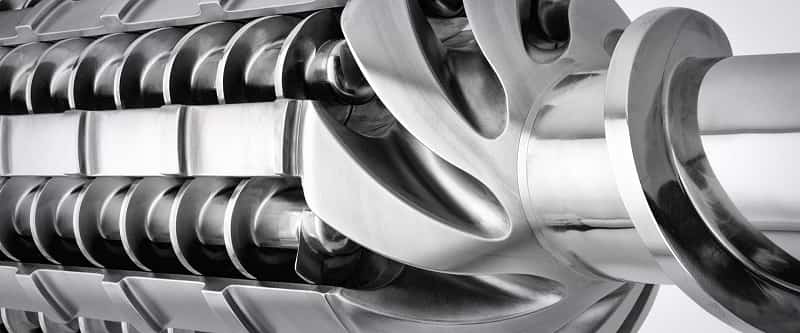
-Johnson Matthey technology qualified to support Shell green hydrogen production
Shell has qualified Johnson Matthey’s (JM) PURAVOC GREENTM purification catalysts for use in its global hydrogen production projects, said the company.
JM’s catalysts will be used to remove trace oxygen to meet oxygen specifications in the production of high purity, zero carbon hydrogen. Removal of oxygen is critical to make the process safer and more efficient. Deoxygenation is an essential step in the production of green hydrogen and requires a flexible and robust catalyst that can operate under a variety of pressures, relatively low temperatures, and intermittent feed flows.
Green hydrogen has a low carbon footprint compared to alternative fuels and can be used as clean energy and in the production of chemical building blocks such as ammonia and methanol. These building blocks are used to make many of our everyday products, from fuels to clothing, food packaging, fertilizers, building materials, pharmaceuticals and more.
PURAVOC GREEN catalysts have been carefully designed to be highly efficient within a broad operation envelope and maintain performance over many operation cycles making this a reliable, easy to operate and economic solution.
Jane Toogood, Catalyst Technologies Chief Executive at JM, said: “We are committed to catalysing the net zero transition for our customers and addressing the biggest environmental challenges that exist. Finding ways to decarbonise and move towards more sustainable processes is of utmost importance and we are pleased to support Shell’s decarbonisation ambition.”
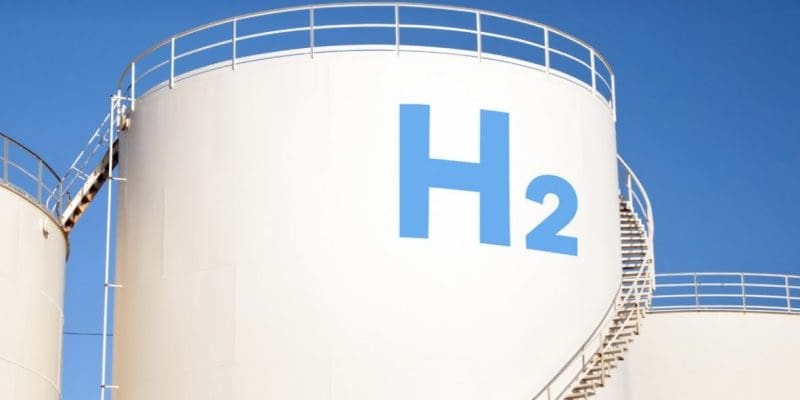
-Advent and LANXESS designate leadership team
The joint venture will comprise three global business divisions, including Performance Materials, Specialty Materials and Intermediates
Advent International (Advent) and LANXESS AG (LANXESS) announce the envisaged global business structure and designated extended management team of the envisaged High Performance Engineering Materials joint venture (JV). Earlier, the duo has announced Calum MacLean as CEO-designate.
Upon closing of the transaction, the JV will be organized into three global business divisions: Performance Materials (comprising DEM Performance Polymers and HPM Engineering Plastics), Specialty Materials (comprising DEM Specialties and HPM Tepex), and Intermediates (comprising HPM Intermediates and DEM Polymer & Films).
This structure will take into consideration the specific market characteristics and management requirements of each of the previous HPM and DEM businesses. These three divisions will be supported by a number of central functions, the exact structure of which will be communicated at a later stage. The JV expects to establish a small head office around Düsseldorf (Germany), and will be supported by the existing Geleen (DEM, The Netherlands) and Dormagen (HPM, Germany) locations.
Advent and LANXESS together with the CEO-designate have announced the following appointments to the designated executive leadership team (further appointments will be made at a later stage):
CFO: Stephen Bennett
EVP Strategy & Transformation: Peter-Hanjo Homberg (currently LANXESS)
EVP Human Resources: Anneleen Drieskens (currently DSM)
EVP Performance Materials: (to follow)
EVP Specialty Materials: Caroline Mitterlehner (currently DSM)
EVP Intermediates: Peter Henrichfreise (currently LANXESS)
Upon closing of the transaction, the JV Shareholders’ Committee composition will include Ronald Ayles (Managing Partner, Advent), Matthias Zachert (CEO, LANXESS), and Roeland Polet (currently President, DEM), representing all parties to the transaction. Further members of the Shareholders’ Committee will be nominated at a later stage.
Calum MacLean, the CEO-designate of the JV, said, “Preparation for ‘day one’ of this exciting High Performance Engineering Materials joint venture is taking shape. The preparation of an integrated face to the market of the combined businesses and the appointment of the first designated senior executives is a major step to hitting the ground running on completion. Likewise, the envisaged Shareholders’ Committee brings a wealth of experience from Advent and the heritage DSM and LANXESS organizations.”
On 31st May 2022, Advent and LANXESS announced the joint, Advent controlled, acquisition of DSM Engineering Materials, alongside its combination with LANXESS High-Performance Materials (subject to competition clearance), to establish a leading global engineering materials company with sales of around EUR 3 billion.
The new company will be one of the leading suppliers to the attractive and growing automotive, electronics, electrical and consumer goods segments, with a particular focus on environmentally friendly and sustainable products.
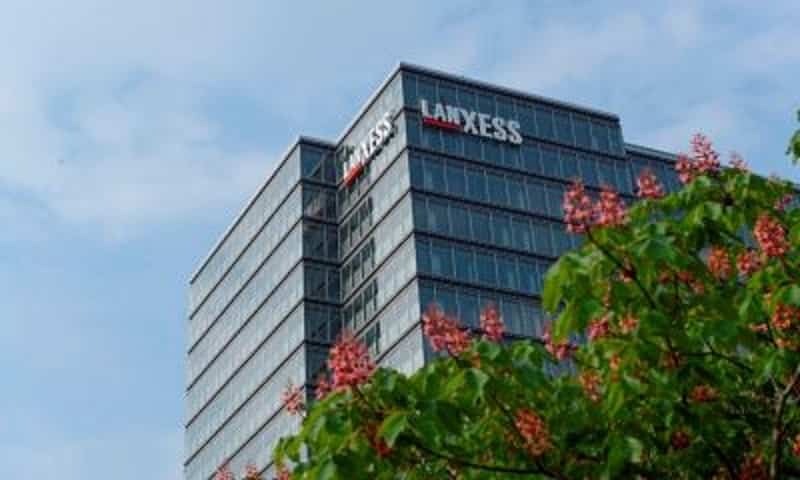
-LyondellBasell forms joint venture to build plastic material sorting and recycling facility
The company has also announced plans to build an advanced recycling plant in Wessling, Germany.
Rotterdam-based LyondellBasell and 23 Oaks Investments, Leiferde, Germany, have signed an agreement to create Source One Plastics, a joint venture to build an energy-efficient, advanced plastic waste sorting and recycling facility in Germany. Using renewable energy from wind and biomass, the new facility can process the amount of plastic packaging material generated by about 1.3 million German citizens annually, the partners say.
According to a news release from LyondellBasell, Source One Plastics will produce processed material that will provide a substantial part of the feedstock for an advanced recycling plant that it plans to build at its Wesseling, Germany, site. Using LyondellBasell’s proprietary MoReTec technology, the company says this plant will be the first commercial-scale, single-train advanced recycling plant and is designed to demonstrate its capability for further scalability. LyondellBasell operates a semi-industrial scale MoReTec plant at its Ferrara, Italy, site.
LyondellBasell’s new plant is designed to convert hard-to-recycle postconsumer plastic material into a feedstock for new plastic products. Once in operation, it will recycle most types of plastic materials, such as multilayered food packaging items or mixed plastic containers. The final investment decision on this project is scheduled for the coming months. Both projects contribute to LyondellBasell’s sustainability ambition to end plastic waste in the environment.
“We are committed to supporting our customers to meet their demand for renewable and circular solutions,” says Yvonne van der Laan, LyondellBasell executive vice president of circular and low carbon solutions. “To truly achieve a circular economy, we have to find creative solutions to meet society’s needs. We are taking an important first step into the upstream side of the business to secure access to plastic waste that we will convert into new plastic materials at our advanced recycling plants. This will enable us to meet our circularity ambition and produce 2 million [metric tons] of polymers from recycled or renewable resources annually by 2030.”
23 Oaks Investments says it is a strategic solution provider in upcycling postconsumer recycled (PCR) plastic with extensive experience in the plastics industry. The Source One Plastics joint venture will provide a broad portfolio of services, including material procurement, sorting and pretreatment to deliver feedstock suitable for producing high-quality PCR material for various applications.
“With our global experience at all levels of the circular economy and our extensive knowledge in all areas of the plastic recycling value chain combined with our strong hands-on approach, we feel we have the right mix of competencies to make Source One Plastics a success,” says Kai Hoyer, managing partner of 23 Oaks Investment. “Together with LyondellBasell’s commitment to expanding on its circular polymer product offering and its work to develop advanced recycling into an industrial scale technology, 23 Oaks can contribute its part to make this a reality.”
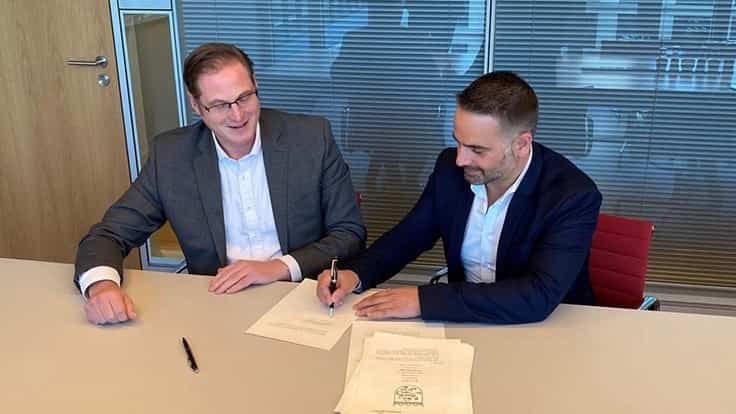
-The K-2022 reckoning: spirit of confidence for circular polystyrene
When Styrenics Circular Solutions made its K debut in 2019, there was a refreshing air of enthusiasm and positivity as the value chain assembled. Our emphasis then was very much on the fact that polystyrene is excellently sortable and efficiently recyclable, with an intrinsic capacity for full circularity, including for food contact applications. In 2019, we already understood that our polymer could make a significant contribution to the circular economy and we already had a portfolio of three recycling technologies: mechanical recycling, dissolution and depolymerisation. So, where do we stand at K2022?
Most importantly, we have progressed in these last three years from knowing what our polymer is capable of to turning that capability into a reality. The excellent results of our challenge tests using two different super-cleaning technologies have underlined our confidence in the safety of recycled polystyrene as food contact material. We have two solid scientific dossiers in place that will be instrumental for obtaining EU authorisation for the use of mechanically recycled polystyrene in food contact applications. Thanks to those results, investors in food grade mechanical recycling facilities have a choice of technologies.
Recently, a scientific study by Fraunhofer confirmed that polystyrene can serve as a safe functional barrier for food contact applications. The study highlighted once more the low diffusion properties of polystyrene, which similar to PET, enable the use of mechanically recycled polystyrene in the middle layer of a so-called A-B-A structure behind the virgin functional barrier. With this, our value chain has a second safe solution for incorporating recycled content in any rigid polystyrene food packaging and foamed polystyrene food trays. Moreover, such packaging can be placed on the market right away.
Our converter members have confirmed that recycled polystyrene is a drop-in solution in their existing facilities, behaving exactly like virgin material in production and that it retains all of the excellent qualities of polystyrene, with the crucial added credential of full circularity. This confirmation from converters has been another significant step in showing that circular polystyrene is already a reality and ready for industrial scale-up.
A comprehensive Life Cycle Analysis (LCA) for polystyrene produced excellent results for the three recycling processes of high purity mechanical recycling, dissolution and depolymerisation compared to the end-of-life option incineration and the production of the virgin material. The results showed a significant improvement of the CO2 footprint with all three technologies delivering food grade recyclate. Further upside potential was identified with the projected scale-up of production in an industry setting. This again was an important boost for the value chain, giving us all confidence in the environmental benefits of recycled polystyrene underlining the important place that polystyrene has in the circular economy, not only with its closed loop food contact recyclability, but also with its contribution to climate neutrality.
There is no question that the value chain’s progress has been significant since our K 2019 debut. But as always, our eye is on the future and the role that our polymer will play in the circular economy. How do we go the extra mile to reclaim the maximum of our molecules? Design for Recycling guidelines will assist us by further boosting sorting efficiency and feedstock quantity and quality for high purity recycling. The result of this will be more recycled material available in terms of both quality and quantity, further enhancing our contribution to European recycling targets.
Another cause for optimism in the years ahead is that brand owners such as Yoplait are embracing circular polystyrene as the best solution for their dairy applications. Their belief in the unique benefits of polystyrene means they are engaging deeply in the drive to turn polystyrene’s circular capacity into reality by accelerating and scaling up market applications with recycled polystyrene content. Their committed engagement is both welcomed and decisive in helping the value chain reach its scale-up ambitions. Of course, as brand owners join our alliance, we hope that retailers will not be far behind them, also putting their weight behind our quest.
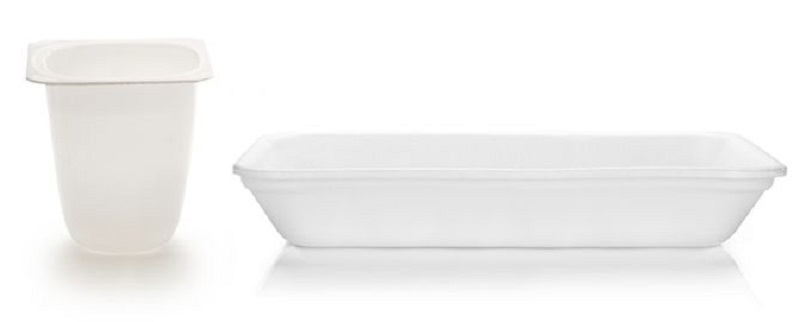
Loop Industries, Inc. (Nasdaq:LOOP) (the “Company” or “Loop”), a clean technology company whose mission is to accelerate a circular plastics economy by manufacturing 100% recycled polyethylene terephthalate (“PET”) plastic and polyester fiber and L’OCCITANE en Provence, a global manufacturer and retailer of sustainable beauty and wellness products, today unveiled a new bottle for the brand’s Almond Shower Oil that was created through Loop’s revolutionary technology.
Loop Industries has partnered with L’OCCITANE en Provence to help meet the brand’s sustainability goal of using 100% recycled PET in its bottles by 2025. In partnership with the brand, a pilot project was executed where the iconic Almond Shower Oil bottle (excluding cap and label) was produced using 100% recycled Loop™ PET resin and was successfully carried out on L’OCCITANE production lines. This initiative marks a significant step forward in the partnership between the two companies and sets the pathway to implement Loop’s technology across other products in the brand’s assortment.
As part of this partnership with L’OCCITANE en Provence, Loop’s branding is featured prominently on the front of the packaging, with additional details speaking to the technology on the back label. The primary placement and visibility of Loop branding on the packaging is a major component of this initiative as it acts as an indicator for true circularity and the quality of the material, highlighting the bottle’s ability to recirculate in the economy infinitely, without degrading in quality. The presence of Loop branding on the packaging adds strong value as it allows the brand to make a powerful statement in sustainability and helps bring visibility to the recyclable potential of the product, supporting Loop’s mission to accelerate a circular plastics economy.
Loop is currently supplying leading consumer brand companies, including L’OCCITANE en Provence, with 100% recycled virgin-quality PET resin that is suitable for food-grade packaging and polyester fiber use through its Terrebonne, Quebec production facility. Loop has recently completed upgrades to the facility which has increased production capacity at the plant. Loop, along with strategic partners SUEZ and SK Geo Centric, plan to commercialize Loop’s technology in Europe through its planned Infinite Loop™ France facility which will help supply European consumer brands, including L’OCCITANE en Provence, with 100% recycled Loop™ PET resin to be used in products and packaging.
Commenting on the activation, David Bayard, Packaging R&D Director at L’OCCITANE en Provence said “L’OCCITANE en Provence is very conscious of the importance of eco-design and sustainable packaging. We have been launching eco-refill products, in-store collections and recycling services and bottles made out of 100% recycled plastic for more than 13 years and are continuing to progress on this. We are proud to partner with Loop Industries, whose innovative technology will help us in achieving our target of 100% sustainable PET plastic in all our bottles by 2025. The innovative technology they provide is a game-changer that can help us play a part in addressing the growing global concern over plastic pollution.”
Daniel Solomita, Loop’s Founder and CEO, stated “We are thrilled to partner with L’OCCITANE en Provence in their journey towards sustainability and to leverage our technology with the brand, helping them progress towards meeting their 2025 goal. The integration of Loop’s branding serves as a visual reference to the infinitely recyclable capabilities of our product and technology, allowing consumers and companies alike to become active partners in our continuous efforts in establishing a circular economy for plastics. We have accomplished another exciting milestone by completing the upgrades to our plant in Terrebonne, Quebec where we are now in full production supplying global brand companies with Loop™ branded PET resin to be used in food-grade packaging and for polyester fiber use.”
About L’OCCITANE en Provence
Since 1976, L’OCCITANE en Provence has been devising, producing and selling beauty, skincare and wellbeing products with the aim of sharing nature’s wonders with the world. We believe that by reviving the strength of all living things, we can help seeds bloom again and reconcile humans with nature. We are Cultivators of Change. Every year, we plant powerful ingredients which are in perfect symbiosis with their ecosystems. We turn to Mother Earth and marvel at her in bloom. We explore her treasures and question our own methods to discover new breakthroughs. We craft them into unexpected memories. We team up with people at a local level because we believe that any action can make a difference, no matter how big or small.
About Loop Industries
Loop Industries is a technology company whose mission is to accelerate the world’s shift toward sustainable PET plastic and polyester fiber and away from our dependence on fossil fuels. Loop Industries owns patented and proprietary technology that depolymerizes no and low-value waste PET plastic and polyester fiber, including plastic bottles and packaging, carpets and textiles of any color, transparency or condition and even ocean plastics that have been degraded by the sun and salt, to its base building blocks (monomers). The monomers are filtered, purified and polymerized to create virgin-quality Loop™ branded PET resin suitable for use in food-grade packaging and polyester fiber, thus enabling our customers to meet their sustainability objectives. Loop™ PET plastic and polyester fiber can be recycled infinitely without degradation of quality, successfully closing the plastic loop. Loop Industries is contributing to the global movement towards a circular economy by reducing plastic waste and recovering waste plastic for a sustainable future.
Common shares of the Company are listed on the NASDAQ Global Market under the symbol “LOOP.”
Forward-Looking Statements
This news release contains “forward-looking statements” as defined in the U.S. Private Securities Litigation Reform Act of 1995. Such statements may be preceded by the words “intends,” “may,” “will,” “plans,” “expects,” “anticipates,” “should,” “could,” “projects,” “predicts,” “estimates,” “aims,” “believes,” “hopes,” “potential” or “continue” the negative of such terms or similar words. These forward-looking statements include, without limitation, statements about Loop’s market opportunity, its strategies, ability to improve and expand its capabilities, competition, expected activities and expenditures as Loop pursues its business plan, the adequacy of its available cash resources, regulatory compliance, plans for future growth and future operations, the size of Loop’s addressable market, market trends, and the effectiveness of Loop’s internal control over financial reporting. Forward-looking statements are not guarantees of future performance, are based on certain assumptions and are subject to various known and unknown risks and uncertainties, many of which are beyond Loop’s control, and cannot be predicted or quantified and consequently, actual results may differ materially from those expressed or implied by such forward-looking statements. Such risks and uncertainties include, without limitation, risks and uncertainties associated with among other things: (i) commercialization of Loop’s technology and products, (ii) Loop’s status of relationship with partners, (iii) development and protection of Loop’s intellectual property and products, (iv) industry competition, (v) Loop’s need for and ability to obtain additional funding relative to its current and future financial commitments, (vi) engineering, contracting and building Loop’s manufacturing facility, (vii) Loop’s ability to scale, manufacture and sell its products in order to generate revenues, (viii) Loop’s proposed business model and its ability to execute thereon, (ix) adverse effects on Loop’s business and operations as a result of increased regulatory, media or financial reporting scrutiny and practices, rumors or otherwise, (x) disease epidemics and health related concerns, such as the current outbreak of additional variants of coronavirus (COVID-19), which could result in (and, in the case of the COVID-19 outbreak, has resulted in some of the following) reduced access to capital markets, supply chain disruptions and scrutiny or embargoing of goods produced in affected areas, government-imposed mandatory business closures and resulting furloughs of Loop’s employees, government employment subsidy programs, travel restrictions or the like to prevent the spread of disease, and market or other changes that could result in noncash impairments of our intangible assets, and property, plant and equipment, (xi) the outcome of the current SEC investigation or recent class action litigation filed against Loop, (xii) Loop’s ability to hire and/or retain qualified employees and consultants and (xiii) other factors discussed in Loop’s subsequent filings with the Securities and Exchange Commission (“SEC”).
∼∼∼∼∼∼∼∼∼∼∼∼∼∼∼∼∼∼∼∼
